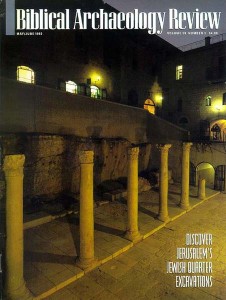Pondering the events and images surrounding the Dead Sea Scrolls in the past year, one cannot help but marvel at the rapidity of change and the degree of public interest in the usually sleepy hollow of the academic study of ancient texts. The “scandal of the scrolls” captured the imagination of the American people. Images of secrecy and intrigue filled the air. The current scroll editors were portrayed as illicitly hoarding the cache, even obstructing the public dissemination of knowledge. The tabloids shared in the fun, quoting “scholars” who found secret references to Elvis buried deep in the supposedly “secret archive.”
Ironically, this controversy occurred after the editors had overcome many organizational and personal obstacles to accelerate the publication of the scrolls at an unprecedented rate. As we look back over the controversy, however, we find little, if any, awareness of this irony.
Why? What happened to the contours of discourse as the “debate” over the scrolls moved from academic circles to the general public via the media? Perhaps before we look to the future in order to understand the contents of the scrolls, we might look to the past to understand how the rhetorical framework of media coverage shaped, or even generated, the scandal of the scrolls.
Already a library member? Log in here.
Institution user? Log in with your IP address.

